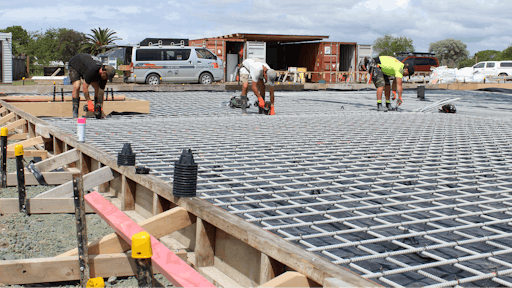Exactly How Composites are Altering the Landscape of Building Materials
Exactly How Composites are Altering the Landscape of Building Materials
Blog Article
Discovering the Uses and Advantages of Recycled Composites in Modern Industries
In today's rapidly developing commercial landscape, the usage of recycled compounds has amassed boosting attention for its prospective to redefine traditional production practices. The combinations of recycled materials with innovative composite modern technologies provides an encouraging opportunity for enhancing sustainability, strength, and cost-efficiency throughout various industries. As industries seek ingenious options to resolve ecological worries and enhance functional efficiencies, the consolidation of recycled compounds emerges as a compelling choice. This change in the direction of lasting techniques not only lines up with international preservation initiatives however additionally offers a myriad of advantages that hold the secret to forming the future of modern production methods.
Environmental Advantages of Recycled Composites
The use of recycled composites in contemporary markets provides considerable environmental benefits, contributing to the reduction of waste and the preservation of natural sources. By incorporating recycled composites right into manufacturing processes, markets can decrease their dependence on virgin materials, therefore lowering the quantity of waste produced and the power needed for extraction and manufacturing. This shift towards utilizing recycled composites helps in drawing away products from landfills, minimizing the burden on waste monitoring systems, and lowering greenhouse gas emissions connected with standard production techniques.
Additionally, the use of recycled composites promotes the conservation of all-natural sources such as hardwood, minerals, and water, which are frequently diminished via the extraction and processing of raw materials (composites). By expanding the lifespan of products with recycling, industries can aid protect communities and biodiversity by reducing the need for new resources. Overall, the adoption of recycled compounds in modern sectors plays a crucial duty in promoting sustainability and minimizing the environmental influence of manufacturing processes
Boosted Sturdiness in Product Manufacturing
With a focus on durability and toughness, including recycled compounds into product manufacturing processes boosts toughness and sustainability. By utilizing recycled compounds, manufacturers can produce items that are not just strong but also immune to tear and wear, making them suitable for long-lasting usage in various markets. The mix of various materials in recycled composites can usually result in boosted toughness and sturdiness compared to conventional materials, supplying a cost-effective service for producing durable items.
Among the vital benefits of utilizing recycled compounds in product production is the ability to tailor the material residential or commercial properties to satisfy particular resilience needs. By changing the structure and manufacturing strategies, makers can customize the recycled compounds to stand up to severe environmental conditions, heavy tons, or constant usage without endangering on efficiency. This flexibility in layout and manufacturing enables for the production of extremely resilient products that maintain their integrity in time, minimizing the requirement for regular replacements and eventually adding to a much more sustainable production a knockout post procedure.
Cost-Effectiveness and Economic Advantages
Integrating recycled composites into product production not only improves toughness and sustainability but also uses substantial cost-effectiveness and economic advantages. Using recycled compounds can bring about reduced material prices as recycled products are usually less costly than virgin products. Furthermore, reusing composite products can lower waste disposal expenses and reduce the demand for landfill space, adding to overall price financial savings for industries.

Technology and Design Versatility With Recycled Composites
Making use of recycled composites in contemporary sectors provides unmatched opportunities for development and layout flexibility. By incorporating recycled materials right into composite production procedures, firms can press the borders of typical layout restraints and check out new opportunities. The adaptability of recycled composites enables the development of complex forms and structures that may not be achievable with traditional materials.
Among the key benefits of recycled compounds is their capability to be formed into different forms, offering developers the freedom to explore special forms and dimensions. composites. This flexibility opens up a globe of innovative possibilities, enabling the development of light-weight yet long lasting products that meet the specific demands of various sectors
In addition, making use of recycled compounds promotes sustainable methods and supports the round economic climate by minimizing waste and reducing the environmental influence of making processes. This emphasis on environmentally friendly style services aligns with the growing fad towards sustainability in modern-day industries, making recycled composites a useful resource for cutting-edge and forward-thinking companies.
Applications Throughout Different Industries
Recycled compounds find impactful and diverse applications throughout a wide array of industries due to their special buildings and sustainability advantages. The aerospace sector benefits from recycled compounds in the production of airplane components, where the materials' strength-to-weight ratio is crucial for making sure security and efficiency. The versatility and sustainability of recycled compounds make them useful across numerous industries, driving advancement and ecological stewardship.
Conclusion
In final thought, the utilization of recycled composites in contemporary sectors offers informative post considerable ecological benefits, enhanced durability in product manufacturing, cost-effectiveness, and economic benefits. The usage of recycled composites allows for advancement and design versatility across different markets. In general, the adoption of recycled compounds offers a functional and lasting option for fulfilling the demands of the sector while additionally reducing environmental influence.

One of the crucial benefits of making use of recycled compounds in product manufacturing is the ability to tailor the material homes to satisfy details sturdiness needs. Using recycled compounds can lead to decreased material expenses as recycled materials are commonly much less pricey than virgin materials. The aerospace sector advantages from recycled composites in the production of airplane parts, where the products' strength-to-weight ratio is important for guaranteeing safety and security and efficiency.
Report this page